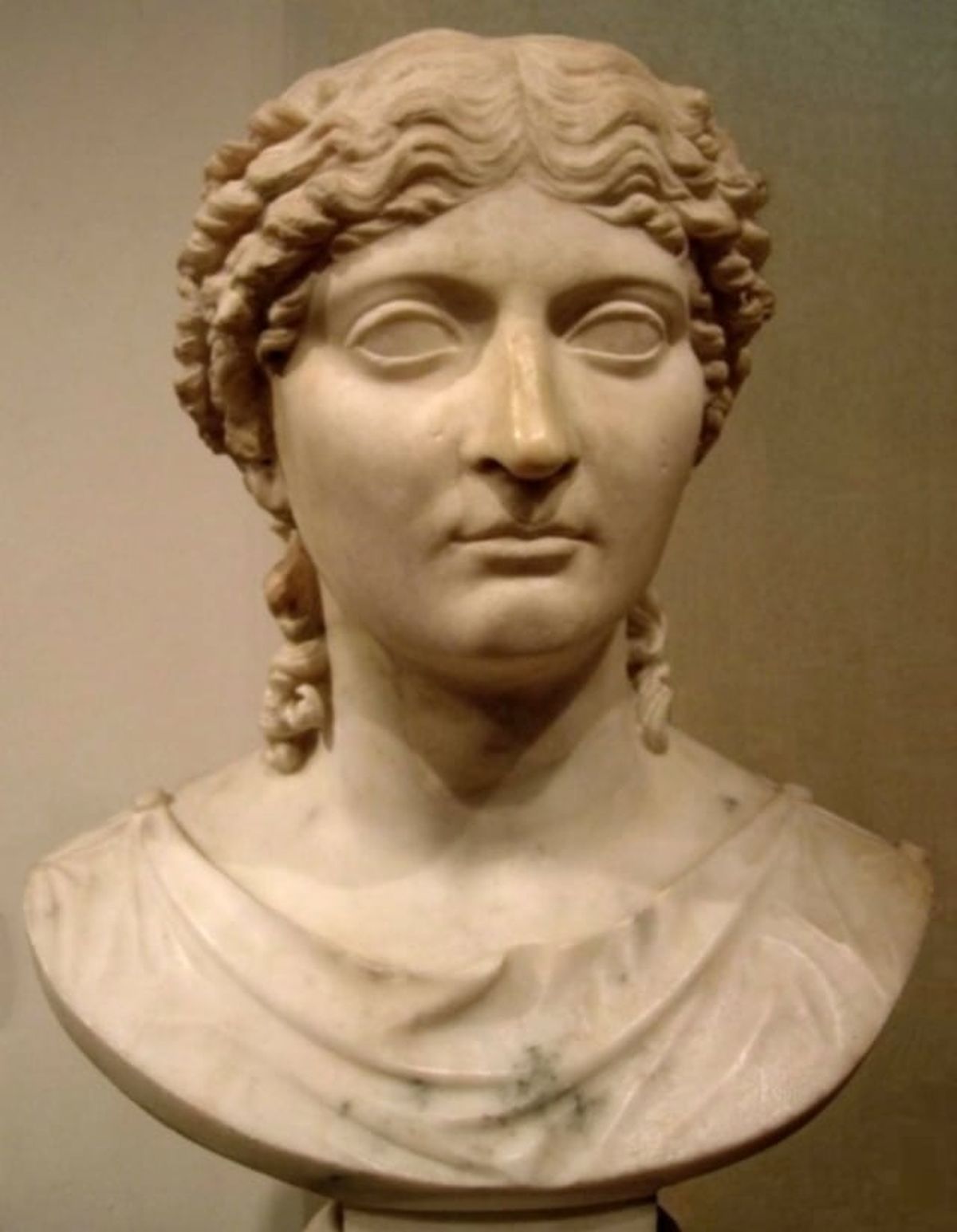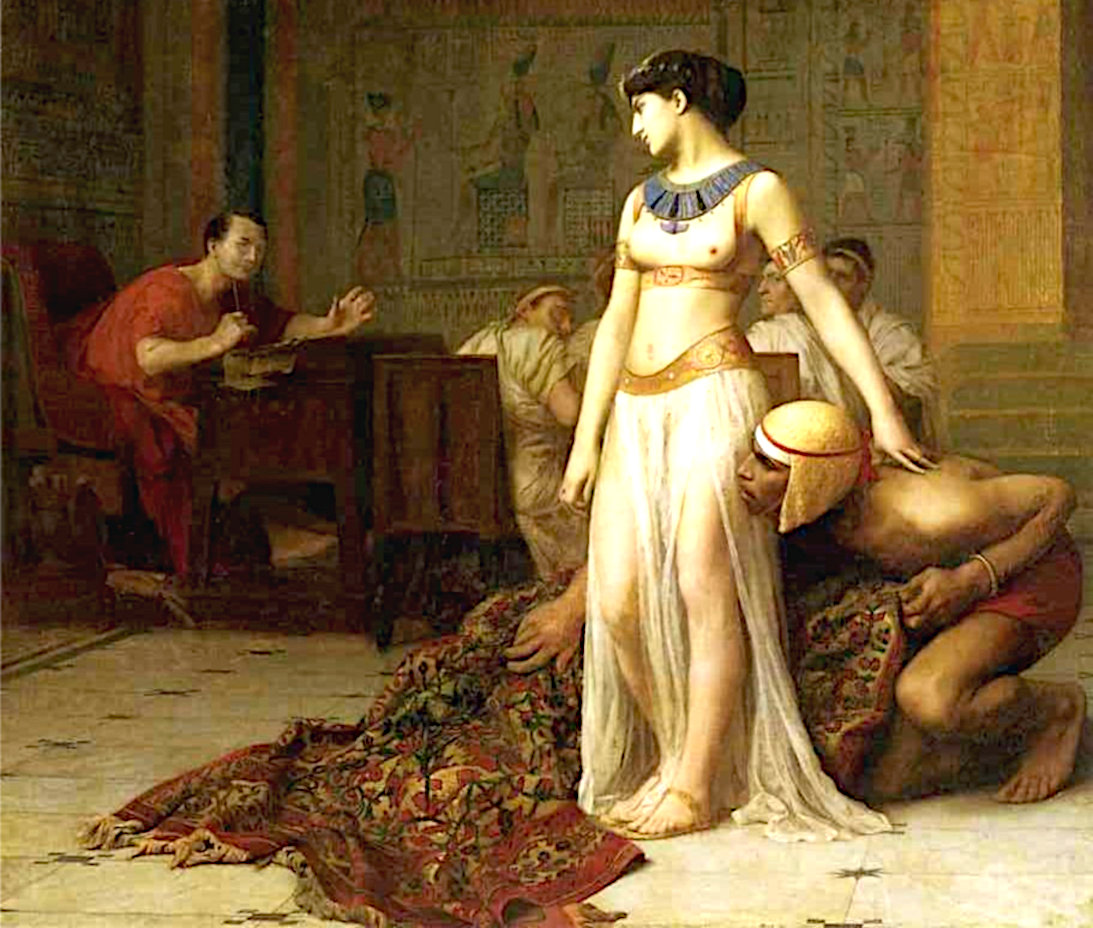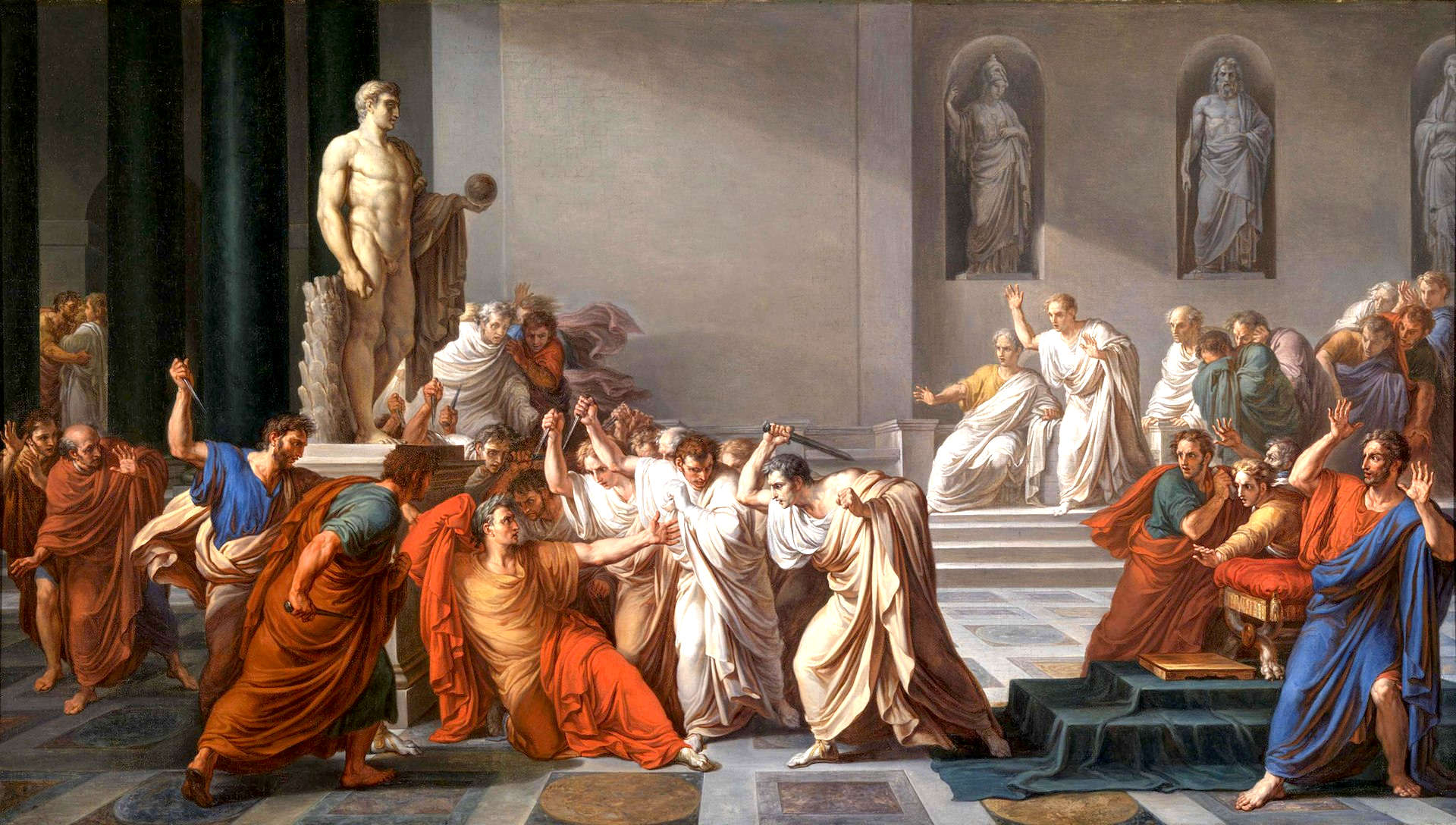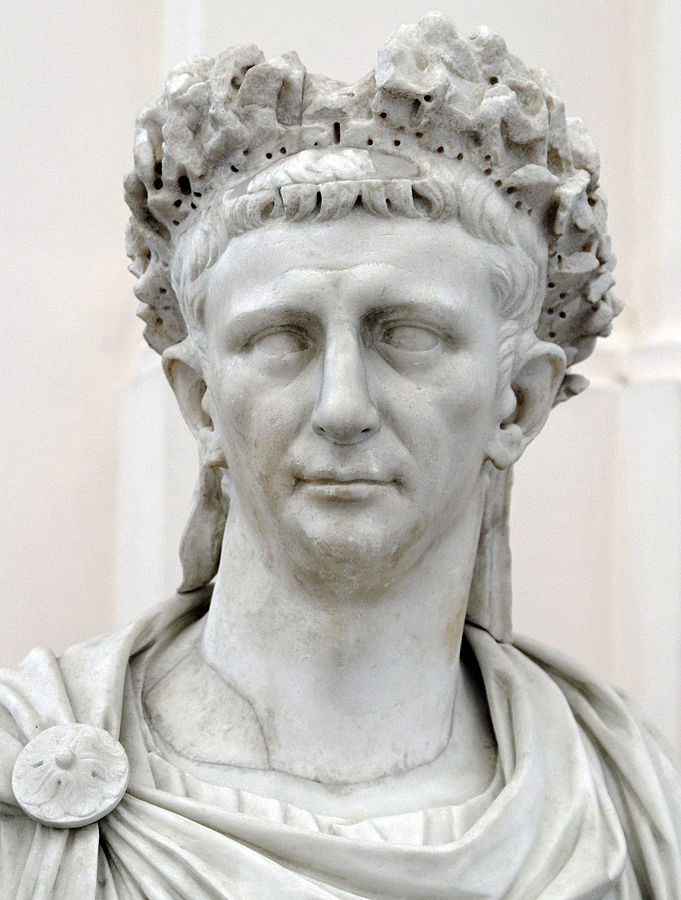
Julia
Agrippina the Younger
Julia Agrippina (6 November AD 15 – 23 March AD 59), also referred to as Agrippina the Younger, was
a Roman empress from AD 49 to 54, the fourth wife and niece of emperor Claudius, and the mother of Nero.
Agrippina was one of the most prominent women in the Julio-Claudian dynasty. She was the great-granddaughter of
Augustus (the first Roman emperor) and the daughter of the Roman general Germanicus and Agrippina the Elder. Her father, Germanicus, was the nephew and heir apparent of the second emperor, Tiberius. Agrippina's brother Caligula became emperor in AD 37. After Caligula was assassinated in AD 41, Germanicus' brother Claudius took the throne. Agrippina married Claudius in AD 49.
Agrippina has been described by modern and ancient sources as a ruthless, ambitious, and domineering woman who used her powerful political ties to influence the affairs of the
Roman state, even managing to successfully maneuver her son Nero into the line of succession. Claudius eventually became aware of her plotting, but died in AD 54 under suspicious circumstances, potentially poisoned by Agrippina herself. She exerted significant political influence in the early years of her son's reign, but eventually fell out of favor with him and was killed in AD 59. Physically, Agrippina was described as a beautiful and reputable woman; and, according to Pliny the Elder, had a double canine in her upper right jaw, which was regarded as a sign of good fortune in Ancient Rome.
Her husband, Claudius was an ambitious builder, constructing new roads, aqueducts, and canals across the Empire. During his reign, the Empire started its successful conquest of Britain. Having a personal interest in law, he presided at public trials, and issued edicts daily. He was seen as vulnerable throughout his reign, particularly by elements of the nobility.
Claudius was constantly forced to shore up his position, which resulted in the deaths of many senators. Those events damaged his reputation among the ancient writers, though more recent historians have revised that opinion. Many authors contend that he was murdered by his own wife, Agrippina the Younger. After his death at the age of 63, his grandnephew and legally adopted step-son, Nero, succeeded him as emperor.

Cleopatra
sets out to seduce the Roman Emperor
Claudius
had no possible link with
Cleopatra, since
she famously poisoned
herself with an Asp
in 31BC, well before the Roman Emperor and his wife Agrippina.

MARRIAGE TO AGRIPPINA
After Messalina’s death, the broken emperor did not think about remarrying. However, at the urging of his subordinates, Claudius changed his position. According to ancient writers, the emperor was presented with three candidates for a new empress: Lollia Paulina –
Caligula’s ex-wife; Elia – the second wife of Claudius and Agrippina the Younger – the emperor’s niece. Ultimately, Agrippina was chosen, probably for political reasons and under pressure from the senate. Tacitus and Suetonius argued that Agrippina simply seduced Claudius and had a great influence on him from the beginning. Interestingly, according to Roman law, the marriage of Claudius and Agrippina was illegal, because the possibility of marrying a niece was excluded. Such behaviour was considered incestuous and disgraceful
(incestum).
They were usually punished with ruthlessness; in archaic times, incest was punishable by death – thrown from the Tarpeian Rock. In later times, the law was milder and the confiscation of property and deportation to the island were envisaged. In this situation, on the initiative of Vitellius (on Agrippina’s command) in 49 CE, the senate passed a new law – senatus consultum
Claudianum.
Claudius married Agrippina the Younger in 49 CE, making her empress and his fourth wife. Her strong personality dominated the last years of the emperor’s reign.
Most historians agree that Agrippina the Younger poisoned Emperor Claudius. His removal opened the way for her son Nero to take power, which was her main goal. In order to achieve it, Agrippina the Younger had been preparing for it for several years, as evidenced by her moves.

Claudius
was the son of a great chief, Drusus the Elder, who died when Claudius was only one year old and Antonia the Younger. His grandparents were: Mark Antony and Tiberius Claudius Nero, and his grandmothers: Octavia and Livia. He had two older siblings: Germanic and Claudia Julia Livilla.
|




